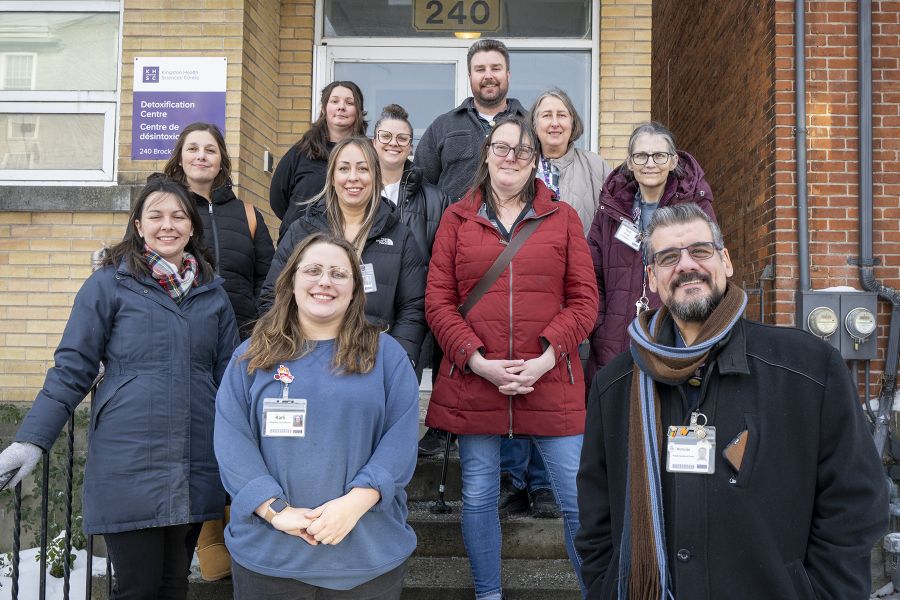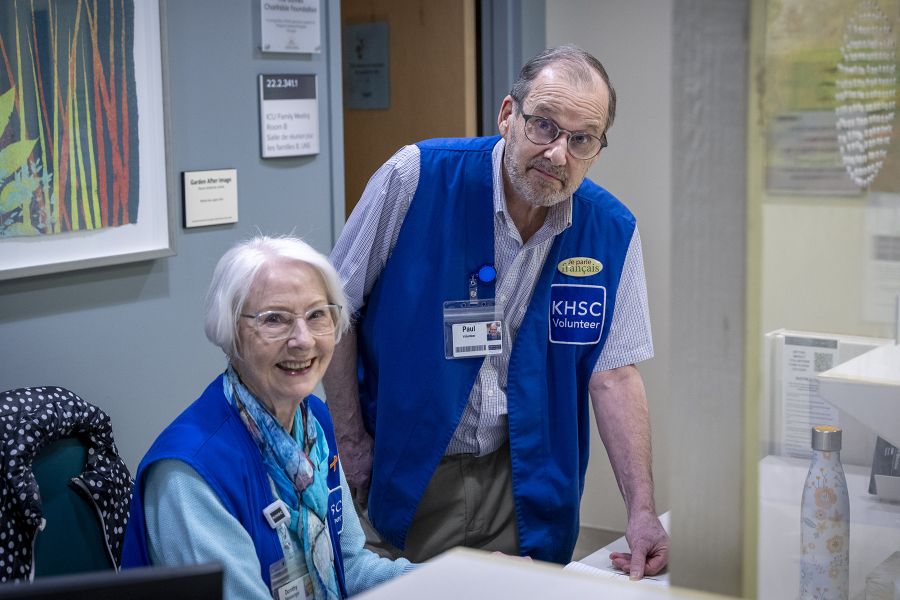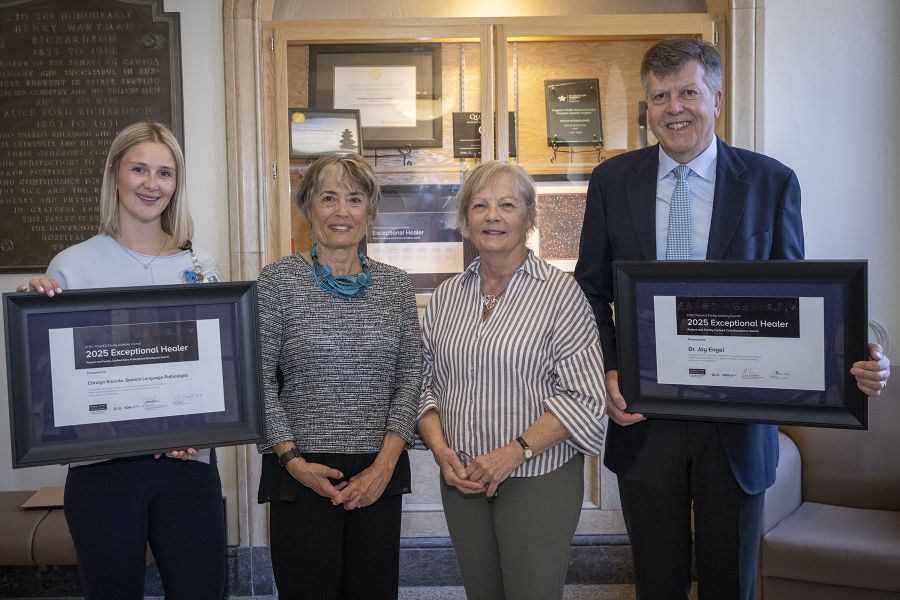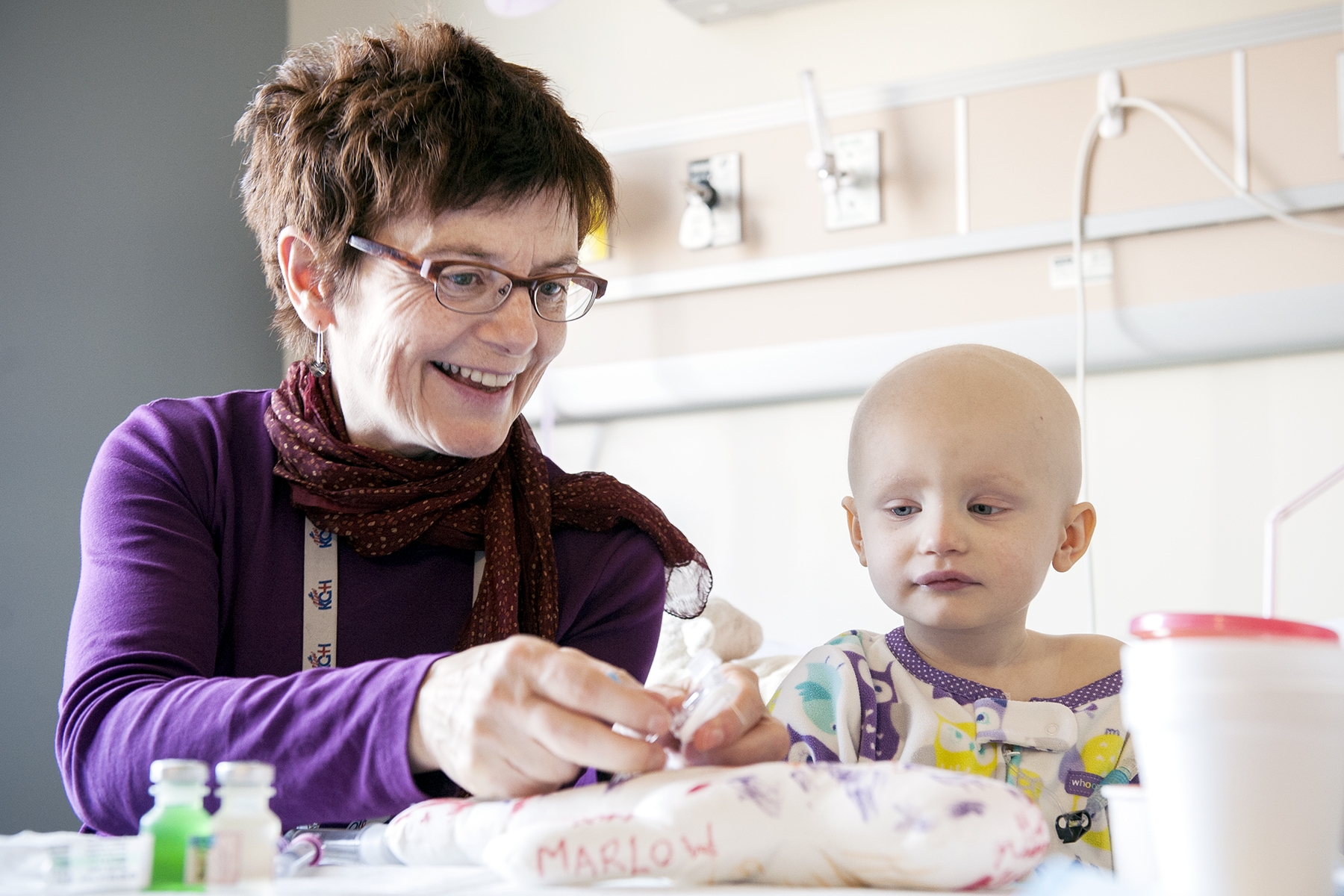
A trip to the hospital can be an experience filled with stress and uncertainty. But for some of the youngest people we care for, the experience can be downright scary. Thats' where KGH's Child Life Specialists come in.
"We're always trying to take the fear and anxiety out of the picture by offering reassurance, comfort and distraction," says Kate Stewart, Child Life Specialist in the Child Life program on Kidd 10. "Kids do best when they understand what's going on, and are prepared for what's coming next. We put their care into terms they can understand and help them develop coping strategies."
Child Life Specialists help prepare and educate child patients and their families. From operating room tours before a child's surgery, to simulating procedures using toy medical instruments, the goal is to reduce stress while increasing comfort and understanding.
"We can only imagine the experience children are faced with," says Christine Leininger, also a Child Life Specialist at KGH. "Even for adults, this environment can be daunting, so we try to incorporate as much fun as possible into the process. Children understand their world through play, so we'll teach and coach them using games, technology, and simulated procedures."
This type of 'medical play' is critical to helping children become familiar with the instruments and people they'll encounter. But it also serves families too, giving parents a chance to take a break from a demanding daily schedule.
"Often parental stress can have an impact on the child, so it's important that we understand the dynamics of each family," says Stewart. "We help everyone become part of a support system, but we also provide relief by reassuring the child that they can count on us, too."
It's a process that's based on teamwork to create the best experience and provide the best care possible, says Leininger. A lot of support also comes from KGH Auxiliary volunteers, and donors from all over the community who support the needs of the program.
"Children can be the most resilient patients, but they also need support in realizing their own potential, and their ability to get through whatever they're facing," says Leininger.
Gallery
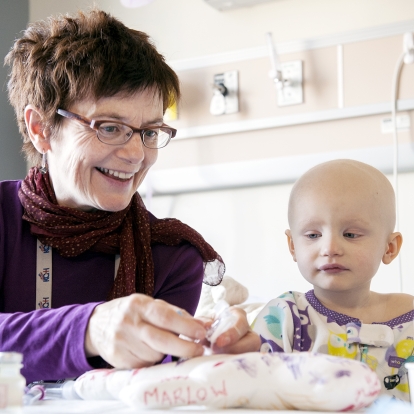
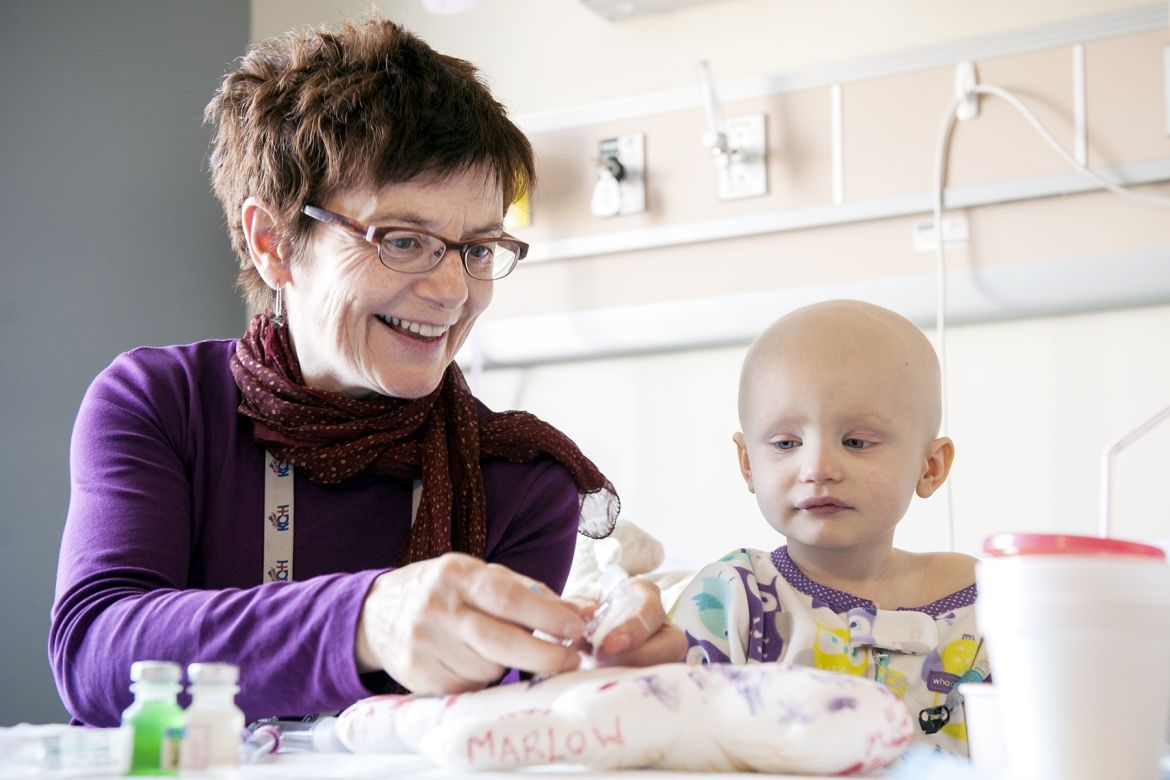
Child Life Specialist, Kate Stewart, shows patient Malow, three, toy medical instruments.

